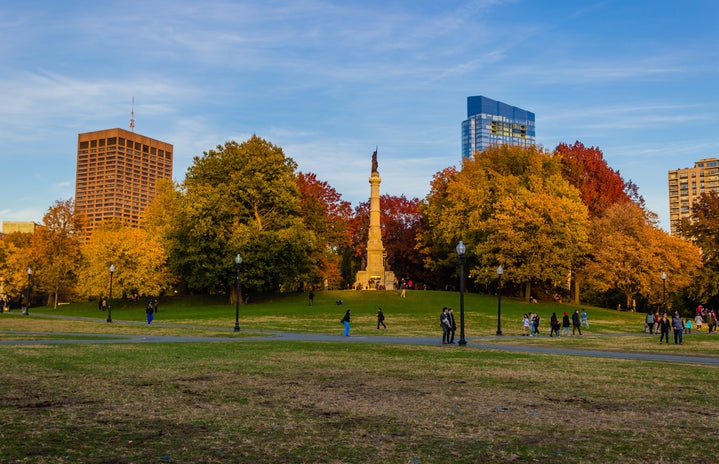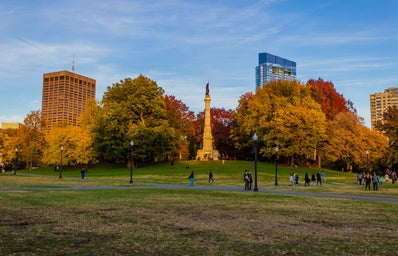“People pity us, but don’t help us out when we’re begging for money on the streets.”
Tiffany Baker is one of the 6,240 people experiencing homelessness in Boston and has been struggling with it for eight years.
Originally from New Hampshire, Baker has never received a high school diploma or kept a well-paying job. She struggles with a drug addiction and has repeatedly been incarcerated. Baker has prostituted herself and also has been raped. She has lived a life many people could not imagine living, however Baker’s optimism is nothing short of inspiring.
At 18 years old, Baker began experiencing homelessness, and at 19 she began abusing drugs. Baker started experiencing homelessness after her grandmother passed away. Baker had dropped out of high school to take care of her terminally ill grandmother, but was on her own after she passed.
“It’s hard to get back into the school routine after I had been out of it for a few years,” said Baker. “It didn’t appeal to me and I thought I could make a new life for myself without school.”
Baker has repeatedly been incarcerated and tried achieving her GED, general education development test, while in prison. However, Baker has fell short of the grades she needs to pass school and has struggled to retry to receive her degree.
In addition to struggling with an education and homelessness, Baker has also struggled with a drug addiction.
She has been in and out of rehab, and a few hours prior to interviewing her, she relapsed.
“It’s tough when you live this life,” said Baker. “I don’t want to be doing drugs, but I’ve been doing it for so long that it’s really hard to quit.”
Baker also said she would like there to be a drug similar to Methadone, which helps heroin addicts break away from their dependency on heroin, for cocaine.
Baker smokes cocaine and occasionally heroin, although her boyfriend Maurice has continually tried to help her.
“It’s sad,” said Maurice. “I tell her not to do it because the next day she is always mad at herself and she struggles trying to get back up onto her feet after she smokes.”
Due to Baker’s drug addiction, Maurice does not let Baker around his children often.
There is a separation between the two families, although the children have met Baker and like her. Maurice and Baker’s relationship has seen its struggles, especially with Baker’s addiction.
Maurice has called the police on Baker after she bit him because he tried stopping her from doing drugs.
“I appreciate what he does, but as an addict it’s really hard and annoying to deal with someone who is trying to take your drugs away,” said Baker. “I don’t want to be like that because it hurts [Maurice] and myself.” Baker said she’s afraid she’s going to overdose one day because it’s so hard for her to quit her addiction.
According to the 2017 Massachusetts Department of Public Health report, there were 202 opioid-related deaths in 2016 in Boston.
This number has increased exponentially since 2012, which had 70 opioid-related deaths. Drug overdose has been an increasing problem, not only for Massachusetts, but for the U.S. in general. According to the Center for Disease Control and Prevention, there were 33,000 opioid related overdoses in 2015 in the U.S.
Baker is not the only person who is struggling.
According to the U.S. Department of Housing and Urban Development, 2.7 percent of the 6,240 people experiencing homelessness were unsheltered. With this many people experiencing homelessness, Baker is upset with Boston and said the public isn’t spending their money properly. “They spend billions of dollars on these buildings, but they should put that money toward more low incoming housing,” Baker said.
Baker has lived in and out of homeless shelters and has even slept on park benches, but said there isn’t enough low-income housing or homeless shelters to accommodate everyone. She said the public should be doing more for the homeless community.



